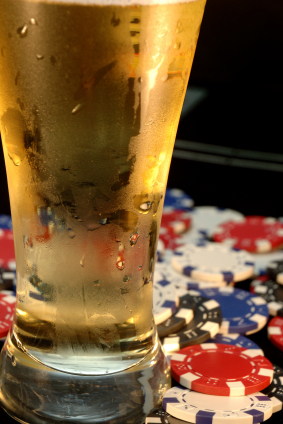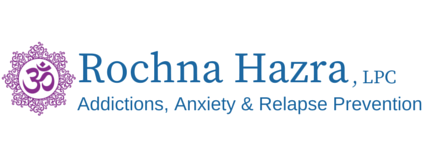Alcoholism Treatment
 Very often, people think of alcoholics as drunks rolling on a street corner. However, if alcohol is ruling your life, moods and relationships, you probably have a problem with drinking. A drinking problem can be insidious and can creep into your life without you realizing it.
Very often, people think of alcoholics as drunks rolling on a street corner. However, if alcohol is ruling your life, moods and relationships, you probably have a problem with drinking. A drinking problem can be insidious and can creep into your life without you realizing it.
Drinking is an accepted social activity in our society— wine with dinner, going out for drinks with friends or celebrating special occasions. Because alcohol so commonly used and is a social lubricant, it can be hard to identify when a person’s drinking has crossed the line from recreational use to problem drinking.
So what is Excessive Drinking after all?
According to the Center for Disease Control:
Excessive drinking includes heavy drinking, binge drinking and any drinking by pregnant women and underage youth.
Excessive drinking is defined as:
- For women, 4 or more drinks during a single occasion or more than 1 drink per day.
- For men, 5 or more drinks during a single occasion or 2 or more drinks per day.
(www.cdc.gov/nchs/fastats/alcohol.htm)
Let us look at some of the signs of alcoholism:
Below are a few questions, that may help you determine whether or not it’s time to get help.
- Do you use alcohol to soothe yourself or numb difficult feelings?
- Do you have frequent arguments with your partner because of your drinking?
- Do you promise to limit the amount you drink, only to break the promise soon after?
- Do you find that you need to drink more and more to experience the same buzz or effects?
- Do people tell you that your personality changes when you drink?
If you have answered “yes” to a few of these questions, chances are that you have crossed over to the area of problem drinking. However, there is no need to be disheartened. The good news is that you are at least looking into how you can get treatment for alcoholism….you are moving forward.
I know my drinking is out of control, but I don’t know how to stop.
The first step toward alcohol treatment is to acknowledge that there is a problem and then make a commitment for change. This can be very hard. People tell me that they feel defeated. They feel discouraged and even ashamed that they have not been able to manage their drinking and use alcohol in moderation. Usually, they don’t really want to quit. Alcohol has provided them a lot of comfort and support through the years and the thought of quitting makes them very nervous. These feelings and thoughts are natural and not uncommon at all.
Also, it is important to remember that this is a phase. You will not feel this way very long. To get through this phase though, you need to be gentle with yourself. Many people believe that being hard on themselves will keep them from slipping back into their usual drinking patterns. The opposite is actually true. Going easy on yourself, setting realistic goals and not expecting perfection will help you make progress.
Overcoming alcoholism can be a long and bumpy road. At times, it may even feel impossible. But it’s not. Alcohol Treatment is, in many ways, similar to any other process that needs persistence. If you’re ready to stop drinking and willing to get the support you need, you can recover from alcoholism—no matter how bad the addiction or how powerless you feel. Moreover, its a myth that alcohol treatment can begin only after you hit rock bottom; you can make a change at any time.
Ok, so you are ready for alcoholism treatment, but you still have some questions or concerns…
Before you reach out for help, you may still have some questions. Here are some questions/objections to counseling that people have expressed to me:
-
I just need to have more discipline and not drink excessively. I was able to do it for a while last year.
A drinking problem is a difficult problem. Your minimizing and dismissing it as a simple problem does not make it so. If it were, you would have resolved it by now. Lets be honest — you have tried drinking in moderation, drinking only beer or wine as opposed to hard liquor, not drink before 6 pm, etc. and for a while it has worked. But slowly things have slid back to where they were. It may have been a bad week -stressors at work or home, or it may have been about celebrating a success. Whatever it was, your drinking has increased yet again. You tell yourself that you only have to try harder, and that you should be able to control it. People tell you all the time that if you cared about your family, you would stop after that second drink, and you want to and for a while you do. But soon enough alcohol takes charge again. You feel ashamed and guilty. You ask, “Why can’t I drink sensibly like everyone else?” You feel defensive because you are trying and your family or career is very important to you.
The fact is that alcoholism treatment is not a simple issue. It is not about discipline and will power. You need the help of someone who knows how this problem affects you physiologically and psychologically. A therapist is someone who not only understands how hard you are trying but will also be honest and upfront with you and point out your blind spots. She will help you come up with strategies that are effective and help you look at the issue in a fresh new way while being supportive at the same time.
In helping you resolve your drinking problem, I will also help you unlock your hidden potential to live life fully. I will help you get rid of the limiting beliefs that you have about yourself so you can reach the heights that you dream of achieving.
-
I drink because I feel anxious when I don’t. If I didn’t feel anxious, I wouldn’t be drinking.
The question is really what comes first— the chicken or the egg. While it may be true that you began to drink to get control over your feelings, the fact remains that now it has turned into a relentless cycle. Because you drink, your body registers the absence of alcohol with symptoms of anxiety and because you feel these symptoms, you manage it with a drink.
But your drinking is really a symptom of underlying issues. Alcohol helps you mask the pain, fear and disappointments that you have not even acknowledged to yourself. Until you work through these issues, you will use something to mask them: you could be drinking, shopping, using pornography, etc.
-
Therapy is expensive.
Yes, It is true that therapy is expensive. But the question is, is it more expensive than losing a marriage or a career? A DUI can cost upward of $10,000! And that is only to repair the damage, not resolve the issue. Are you less effective at work meetings because you are hung over? You may think that no one has noticed but they probably have noticed that there are days that you are not totally on top of your game. Your spouse has noticed that you are often withdrawn or irritable or both. You don’t want to engage and participate and you are interested only in activities that involve drinking. These things have huge costs in the long run. Add to it the loss of your potential and quality of life.
Once you have added up these costs, do you still believe that therapy is expensive?
Please call me with any additional questions and to make an appointment. Or, simply make an appointment online. It’s easy! This is an important next step in control of your drinking and getting back to the life you remember and enjoy.
Rochna Hazra is trained in Marriage and Family Therapy at Virginia Tech. She includes the emotional, psychological, spiritual and family aspects of a person in her work. She has in-depth knowledge, training and experience in working with alcoholism.
Rochna is also a Certified Advanced Relapse Prevention Specialist and trained in Sex Addiction and Mindfulness-based Therapy and Mindfulness-based Relapse Prevention.
Originally from India, she combines the Eastern traditions of mindfulness, non-judgment and a holistic approach to healing with the Western approach of realism and solution-focused action.

